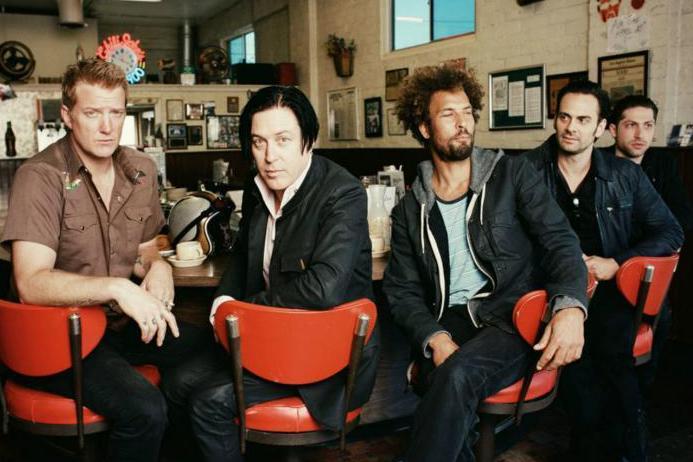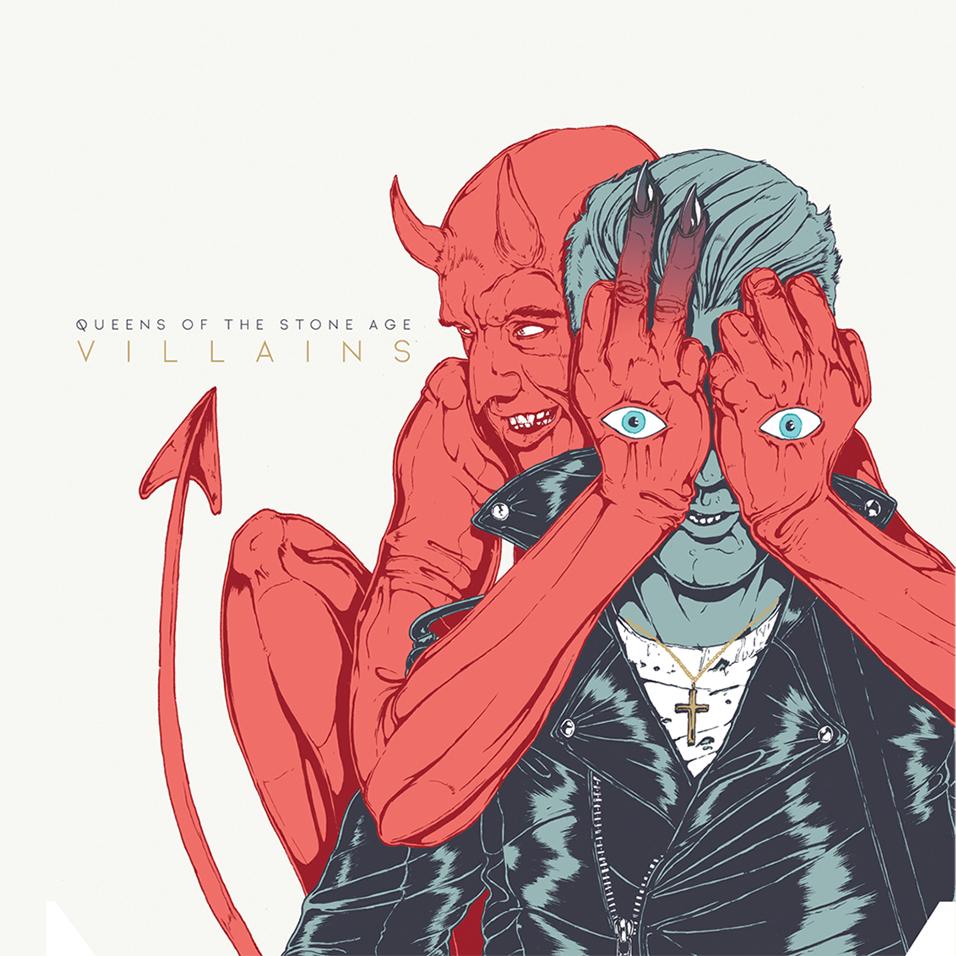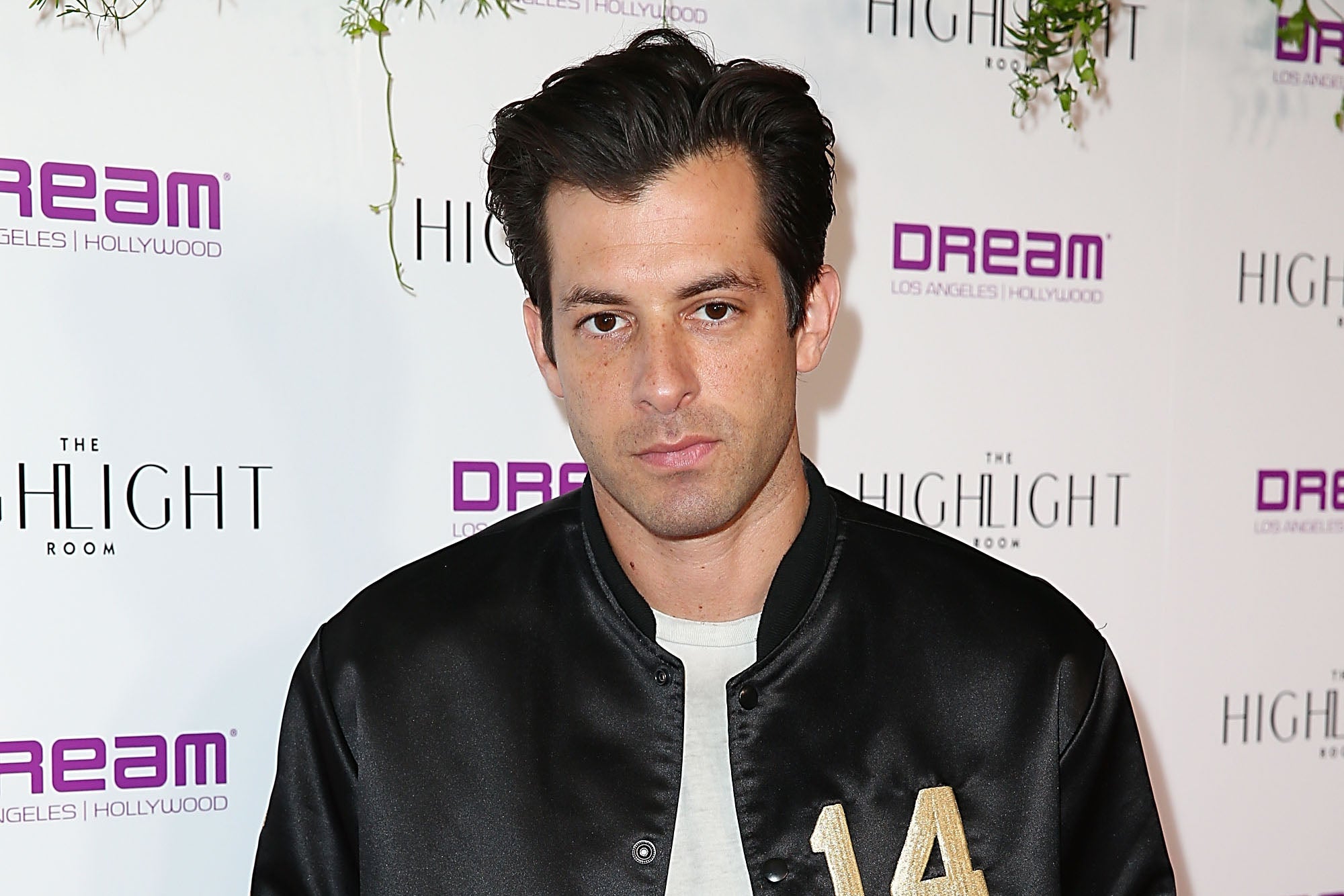Queens of the Stone Age's Josh Homme: For this record, it was like, we should take our old sound and screw it over
Queens of the Stone Age release their seventh studio album this week. Leader singer Josh Homme talks to Jon Pareles about being a ‘now-ist’ and working with Mark Ronson

“I’m supposed to be lying in bed,” Joshua Homme, the singer and guitarist who leads Queens of the Stone Age, says from his home in California. Homme, 44 and sounding vigorous, is recovering from knee surgery for a torn right meniscus he injured by dancing during a 16-hour video shoot. The band was making, he says, a “Cab Calloway-inspired” clip for the single “The Way You Used to Do”.
The song has a swinging glam-rock beat behind taut guitars; it’s from Villains, the seventh Queens of the Stone Age album, out on Friday, which revs up the band’s music after their more openly pensive 2013 release, ...Like Clockwork. Although its title song, “Villains of Circumstance”, is a slow-building meditation on longing and loyalty, other songs summon the kick of punk and glam, along with the zigzagging odd metres that Queens of the Stone Age has long thrived on.
Founded by Homme in 1996, Queens of the Stone Age grew out of the “stoner rock” movement pioneered in the California desert by Kyuss, a band Homme started as a teenager in the 1980s.
Queens of the Stone Age were an unlikely candidate to persist for decades; in their early years, the band casually flaunted their excesses. But Homme’s songwriting was always rigorous, ambitious and unaligned with passing trends, and the band have built and held an arena-scale audience. (They play London’s O2 in November).

The group made Villains with an unexpected producer: Mark Ronson, known for pop hits with Amy Winehouse and Bruno Mars. While Ronson helped a crisp band sound crisper, he didn’t impose radio formulas on the songwriting, which is credited to Homme and three other band members: Troy Van Leeuwen and Dean Fertita on guitars and keyboards and Michael Shuman on bass. The band’s defining tension between angular riffs and sustained melody is intact, and Homme’s lyrics still encompass incitements to anarchy, thoughts of mortality and confessions of angst.
Between albums with Queens of the Stone Age, Homme sustained triumphs and sorrows. He collaborated in 2016 with his longtime idol, Iggy Pop, on an album, Post Pop Depression, and they shared a brief, incandescent tour that was filmed at the Royal Albert Hall. Another of Homme’s projects is his part-time membership in Eagles of Death Metal, the band that were performing at the Bataclan in Paris in 2015 where terrorists massacred audience members. He was not there but knew some of the victims. He remains reluctant to speak about what he now calls “the events”.
Experience has made him a “Now-ist”, Homme says. “I’m not going to wait. Your willingness to take a risk is its own reward in this day and age.”
Q You’ve been leading bands for 30 years, and the new songs consider longevity and perseverance. In “Feet Don’t Fail Me”, you sing, “Life is hard, that’s why no one survives/I’m much older than I thought I’d be.” You could apply that to you and the band.
A This is our seventh record, and we’re lucky enough – forget lucky, we’ve worked hard enough to have our own sound. But I worry about being too static, that it becomes a parody of itself. So I just was, like, we need to burn the effigies of things we would normally do and to hang on to the idea of who we are but redefine our sound for modern days. For this record, it was like, man, we should risk our own reputations. We should take our old sound and screw it over.
Enjoy unlimited access to 100 million ad-free songs and podcasts with Amazon Music
Sign up now for a 30-day free trial. Terms apply.
ADVERTISEMENT. If you sign up to this service we will earn commission. This revenue helps to fund journalism across The Independent.
Enjoy unlimited access to 100 million ad-free songs and podcasts with Amazon Music
Sign up now for a 30-day free trial. Terms apply.
ADVERTISEMENT. If you sign up to this service we will earn commission. This revenue helps to fund journalism across The Independent.

Q What did you take away from working with Iggy Pop?
A My old man asked me, “Who is Iggy Pop?” I said, Dad, I’ve been doing this a long time and with a lot of people. I’ve stood at the edge many times. And when you take that risk, a lot of people fall off and they perish. A lot of people don’t have the sand to even get close to the edge. And there will be one person that will stand on the edge the whole time, with their toes over the edge and their heels on the ground, and they will not fall but they will see it all. And that’s Iggy.
Being with Iggy, it recharged the battery. I’ve been chasing the brake lights and dust of something since I was little, and I got close a bunch of times, but at the Royal Albert Hall I touched the bumper, you know what I mean?
It was something I had been thinking about since I was 13, and it got done right in my opinion, and I gave it all I had and then it’s over. And who are you now and what do you do? It took me a second to know anything. Or I could have said, I don’t need to do anything else.
Q Obviously you did need to. There’s a line in “Hideaway” about having an “addiction to friction”.
A That addiction to friction – what’s the synonym for that? Collaboration, sex, the universe. The universe is made out of collision. If everything was perfect and parallel, no one would touch and it wouldn’t matter. It’s in the collision that sparks the fire that’s worth standing next to. Some people call it looking for trouble, but I disagree with that. I’m looking for action, you know?
The universe was made out of imperfection. Perfection is like truth – something to strive for, but not something to expect. Now, with Pro Tools [recording software] you can make perfect music and you know what it sounds like? Boredom. No collisions, no trouble, no spit, no blood, no nothing.

Q But the Queens are really precise.
A We’re precise but let’s take our single [“The Way You Used to Do”]. We played the whole thing live. There’s mistakes all over. I demand that we leave those alone because that’s how I can prove that we’re humans. That’s how I sleep at night.
Q Why did you pick Mark Ronson? The new song “Domesticated Animals” talks about wanting to be feral, while to me Ronson’s productions often sound carefully retro and neat and...
A Buttoned-up. Well, the give and take of collaboration is that you must have a present to bring. I think oftentimes I bring the gift of disruption and corruption. I don’t mean corruption in the City Hall way, I mean, like rust. I think it’s fun to pervert that buttoned-up type, as an offering and as a friend.
I knew that there were people that would say, “You’re working with Mark Ronson? Oh, it’s ruined.” And I think, wow, this is a great start. Because the truth is he’s a musicphile, he knows who produced everything and what studio it was in and who the engineer was. He hasn’t done much rock, if any, so what’s he going to do? Put his best foot forward? OK!
Q How did you change the band’s sound?
A The plan was to take the things that we had done, the dirty reverbs, the wide nebulous midrange, and flip it for DI [direct injection] guitars [recorded directly into the mixing console]. And when vocals are gone and something needs to vocalise, let’s have keyboards vocalise. And because Ronson’s so beat-centric, and we want people to dance, let’s let the drums be a tight thump, so there’s lots of space and air for everything else. Let’s let things happen once for no reason. Because no reason is the perfect reason.
Q It might be an illusion, but the songs on the new album seem shorter and punchier.
A In the past, in order to get to all the ideas and variances of a riff, I would have laid out a song really long and laid it out linearly. But the idea of this was to make them tall and deep, and try to keep the songs much shorter. I call it orbital. You hear a verse, but the next time you hear a verse, it’s only about 50 or 60 percent the same. It’s rotating and changing and being morphed. Instead of a song that is like a merry-go-round, where you go around in circles and you know what’s going to happen, I want it to be more like a bus stop. You get on and you get off at a different location, and you’re kind of along for the ride.

Q Your studio in California, Pink Duck, is crammed with vintage gear that it seems Ronson would love. Did you record there?
A No, I needed a change of scenery. We went over to United Recording, where Dino and Nat King Cole and Frank Sinatra and Dizzy Gillespie and all these guys did their records, post-Capitol, when Frank started Reprise Records. I tried to soak up as much of the ghost of Dino and Sammy and Nat King Cole as I possibly could. Which apparently is not very much.
Q There’s a lot of talk that rock is embattled these days.
A Yes, people have said, “Are you saving rock ‘n’ roll?” And I was like, “Is it drowning? What are you talking about?” It’s always one song away. And the rest of that discussion, I don’t have time for that discussion.
My goal really is to make records that teach me something, where I can actually be a better person by the time they’re done. I can leave the bad behind, I can learn how to move forward. It’s a beacon to light the way for what I’m supposed to do. So they’re important, and I take that seriously so I don’t have to take myself too seriously.
I’ve already got some land where they’re digging a hole. At some point, someone will go to the desert and they’ll have the gnarliest, most rewarding deep thought possible. And they’ll be standing just on top of me.
© New York Times
Queens of the Stone Age's album 'Villains' is out 25 August
Join our commenting forum
Join thought-provoking conversations, follow other Independent readers and see their replies
Comments